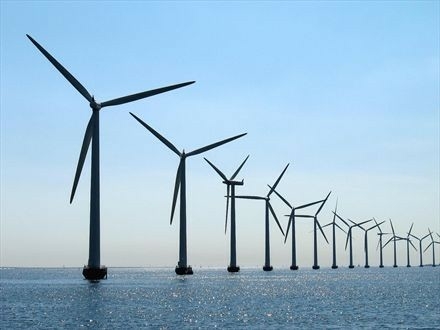The population of the world is becoming more aware of sustainability. At the same time it is becoming more accepted that there is no way out from having to use new sustainable techniques, if a country wants to keep on functioning in the future.
Most countries have not yet gotten further than some initial forays into this brave new world, but there are some countries, islands and cities who have decided to be proactive about this new sustainability thing, and they are far ahead of the world curve. Yet it can’t be that their citizens are so different from the other countries, that they weren’t scared or unwilling to work with this new, untrustworthy techniques that sometimes hadn’t even been tested in practice yet.
Of course there were probably government officials or experts promoting these new techniques, yet in the end they weren’t the ones who had to use it. The question is then how come these places exist where all the consumers are enthusiastic and willing to cooperate with these new technologies?
This can be explained, at least in part, due to prosuming [1]. Prosuming is what happens when a consumer starts participating in producing (at least part of) their own required resources. With the current system this is simply not possible. The oil and other resources are in other countries, which the consumers cannot reach. However these new technologies are often small scale and local.
The pros of these are that consumers can start participating. Cons are that this locality brings noise, smell and sight pollution with it. And it doesn’t change the fact that many of these techniques are not yet embedded within the social consciousness.
There is not one specific way to get inhabitant involvement. It is however notable that there are many islands as frontrunners for sustainable development. It isn’t really surprising, as islands often have strong social communities, and a lot of trouble in transporting resources. They also often tend to be much more fragile in case of climate change [2].
Though once this first step has been taken, people’s opinions can change quickly. This is a social phenomenon called in-groups and out-groups. They are much more open to the behavior of members of the same group, and are much more willing to help them [3]. Suddenly the noise isn’t that loud, and the smell is simply part of the natural processes. People stop seeing the cons when they start benefitting from the pros [4].
Once this first step has been taken, the ball can start rolling. It will become easier to get them to accept more sustainable initiatives. They are now part of a bigger goal, part of the race to become one of the most sustainable areas in the world, and they are willing to work, and be inconvenienced for it.
[1] Gunelius, S. (2010). The Shift from CONsumers to PROsumers. Retrieved
November 21st, 2015, from http://www.forbes.com/sites/work-in-progress/
2010/07/03/the-shift-from-consumers-to-prosumers/
[2] Climate Institute. (2014). Global Sustainable Energy Islands Initiative (GSEII). Retrieved
November 21st, 2015, from http://www.climate.org/programs/islands/gseii.html
[3] Fu, F., Tarnita, C.E., Christakis, N.A., Wang, L., Rand, D.G, Nowak, M.A. (2012).
Evolution of in-group favoritism. Scientific Reports, 2. doi: 10.1038/srep00460
[4] Biello, D. (2010). 100 Percent Renewable? One Danish Island Experiments with Clean
Power. Retrieved November 21st, 2015, from http://www.scientificamerican.com/article
/samso-attempts-100-percent-renewable-power/
[Image] Molenaar, K. (2014). Fryske Gea: geen windmolens Waddenzee en eilanden.
Retrieved November 21st, 2015, from http://www.nieuwsbladnof.nl/nieuws/36569/fryske-
gea-geen-windmolens-waddenzee-en-eilanden/
